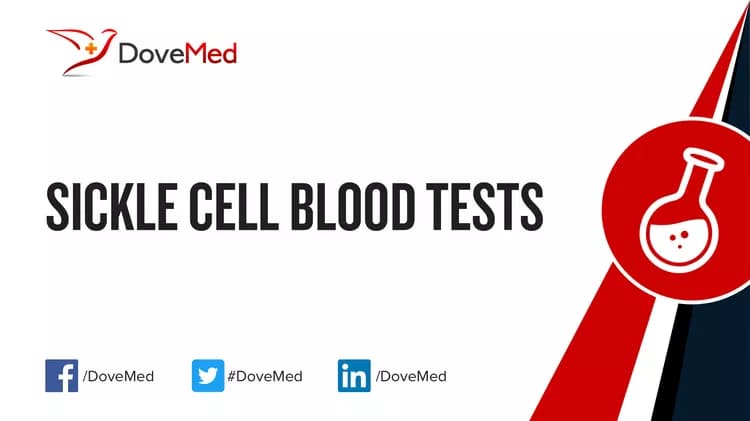What are the other Names for this Test? (Equivalent Terms)
- Dithionite Test
- Itano Solubility Test
- Metabisulfite Test
What is Sickle Cell Blood Tests? (Background Information)
- Sickle cells are abnormally-shaped red blood cells. They resemble a J-shaped sickle, instead of the normal biconcave disc (like a filled-in donut)
- The alteration in structure of red blood cells diminishes their oxygen-carrying capacity. It also reduces their ease of movement through blood vessels. This can cause a pile-up of red blood cells that may occlude blood vessels and starve tissues of oxygen
- The distorted shape of sickle cells is due to their having an altered form of hemoglobin, called hemoglobin S (Hb S). Hemoglobin is the main oxygen-carrying protein present in red blood cells
- Like with every other protein, the blueprint for hemoglobin resides on DNA. Heritable changes in the region of DNA that gives instructions for hemoglobin can result in the Hb S variant. In fact, a change in a single “base pair” of this DNA region causes RBCs to be sickle-shaped. This is the smallest DNA alteration possible
- Sickle Cell Blood Tests are tests that determine the presence of sickle cells. Most rely on the presence of Hb S as a definitive marker
- A Sickle Turbidity Tube Test involves the addition of dithionite to a blood sample. If the mixture becomes cloudy, Hb S is likely present
- Another type of sickle test involves the use of metabisulfite. This chemical induces sickling in red blood cells that have the disorder
What are the Clinical Indications for performing the Sickle Cell Blood Tests?
Following are the clinical indications for performing Sickle Cell Blood Tests:
- Routine screening, which is especially carried-out in certain sub-Saharan African populations
- Family history of sickle cells
- Shortness of breath
- Pale appearance (pallor)
- Diffuse pain
- Vision loss
- Stroke
- Unexplained tissue destruction
How is the Specimen Collected for Sickle Cell Blood Tests?
Following is the specimen collection process for Sickle Cell Blood Tests:
Sample required: Blood
Process: Insertion of a needle into an arm vein (for adults), or by pricking a heel or finger (in infants).
Preparation required: No special preparation is needed prior to the test.
What is the Significance of the Sickle Cell Blood Tests Result?
Positive results of Sickle Cell Blood Tests may indicate:
- Sickle cell anemia
- Sickle cell anemia, in combination with another red blood cell abnormality
The laboratory test results are NOT to be interpreted as results of a "stand-alone" test. The test results have to be interpreted after correlating with suitable clinical findings and additional supplemental tests/information. Your healthcare providers will explain the meaning of your tests results, based on the overall clinical scenario.
Additional and Relevant Useful Information:
- Sickle cell anemia is thought to guard against malaria. Thus, it has withstood natural selection and has been passed on through generations
- The prevalence of sickling can be expressed, as the number of sickle cells per 1000 red blood cells
- Red blood cells with Hb S may be induced to sickle during times of stress. This includes oxygen deprivation and the addition of chemicals, such as metabisulfite
Certain medications that you may be currently taking may influence the outcome of the test. Hence, it is important to inform your healthcare provider, the complete list of medications (including any herbal supplements) you are currently taking. This will help the healthcare provider interpret your test results more accurately and avoid unnecessary chances of a misdiagnosis.
Related Articles
Test Your Knowledge
Asked by users
Related Centers
Related Specialties
Related Physicians
Related Procedures
Related Resources
Join DoveHubs
and connect with fellow professionals


0 Comments
Please log in to post a comment.